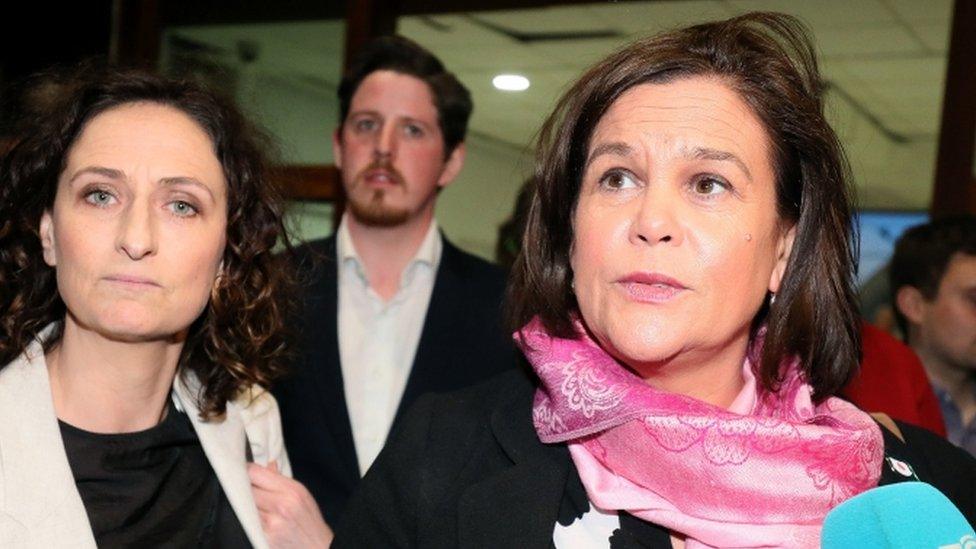European elections 2019: Dublin count halted over vote dispute
- Published
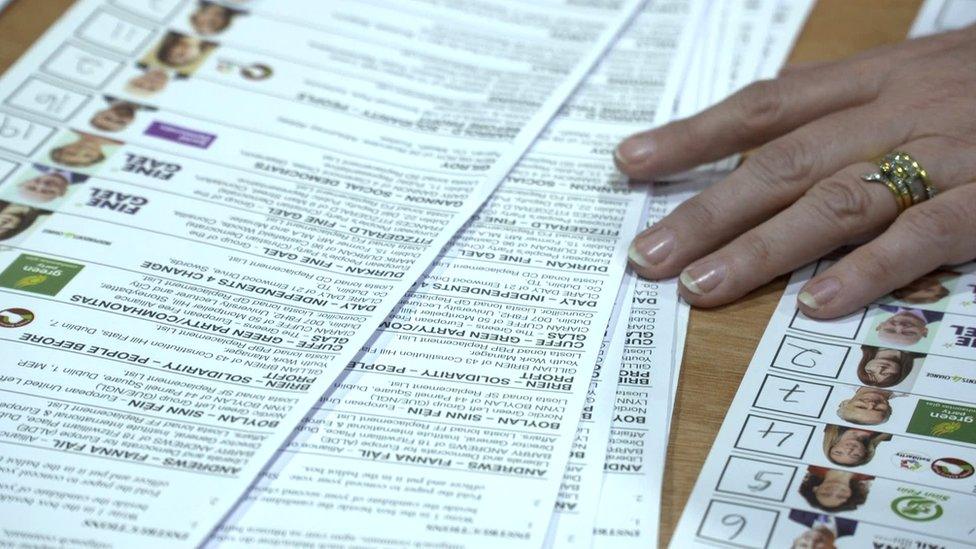
Just two of the Republic of Ireland's 13 seats have so far been filled
European election counting has been suspended in one of Republic of Ireland's constituencies following a dispute over vote transfers.
The count in Dublin will resume at 11:00 local time on Tuesday morning.
The dispute comes over the potential distribution of votes for the two remaining seats in the Dublin constituency.
Three of the Republic of Ireland's 13 European Parliament seats have been filled so far.
Counting in the Republic began on Sunday night, but progress has been slow.
Fine Gael's Mairead McGuinness was re-elected in the Midlands-North-West constituency with 134,630 votes.
She will be joined in the European Parliament by the Green Party's Ciaran Cuffe and Fine Gael's Frances Fitzgerald, who were elected in Dublin on the 13th and 14th count respectively.
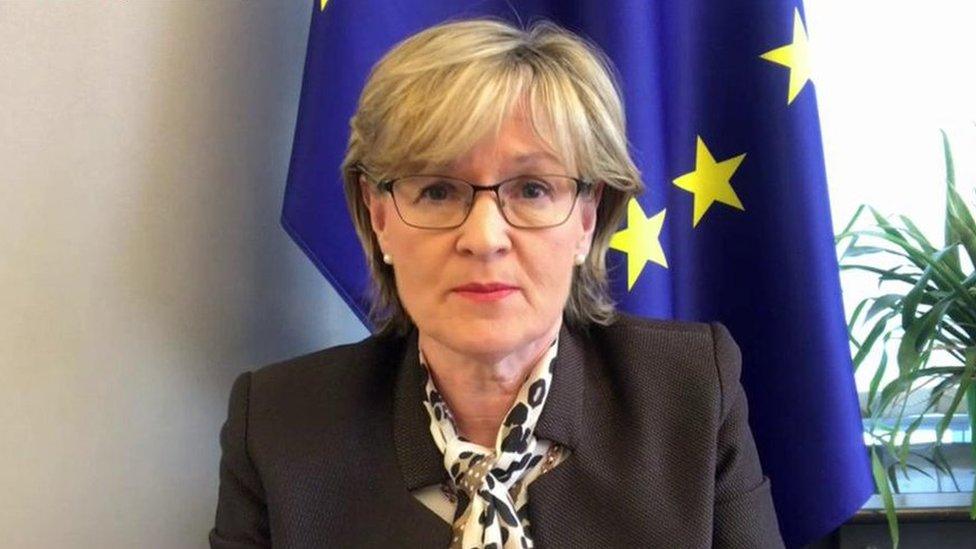
Mairead McGuinness is the European Parliament's vice-president
The two remaining Dublin seats will be taken by Fianna Fáil's Barry Andrews and Clare Daly of Independents 4 Change.
However, a dispute over whether votes will be distributed between the pair has brought the count to a halt.
The potential transfers will decide which one finishes third and fourth in the poll. The fourth and final seat will only become active if and when Britain leaves the EU, as it one of the UK's parliament seats that has been redistributed by the EU.
Earlier, Ms McGuinness said she was "delighted, relieved and a bit tired" to retain her seat.
Durkan eliminated
"I am deeply honoured and humbled by the size of the mandate I have received," she said.
Turnout in the election was 49.7%, with the governing Fine Gael party topping the poll with 29.6% of first preferences.
Fianna Fáil had 16.5%, Sinn Féin had 11.7% just ahead of the Green Party with 11.4%, while independents took 15.7% of the vote.
The former SDLP leader, Mark Durkan, who stood in Dublin, has been eliminated.
He said that voters cared less about Brexit than domestic issues.
He added that he did not regret standing for Fine Gael even though the party he once led in Northern Ireland has a working relationship with Fianna Fáil - Fine Gael's traditional rival.
As in the Republic's local elections, Sinn Féin's vote is down.
The party's Dublin MEP, Lynn Boylan, will struggle to hold her seat against the challenge from the independent left-wing Clare Daly, with anxious waits also for Liadh Ní Riada in Ireland South and Matt Carthy in Ireland Midlands-North-West.
'Fragile relationship'
Fianna Fáil, the main opposition party, which is in a confidence-and-supply arrangement with Fine Gael, performed the best of all the parties in the local elections.
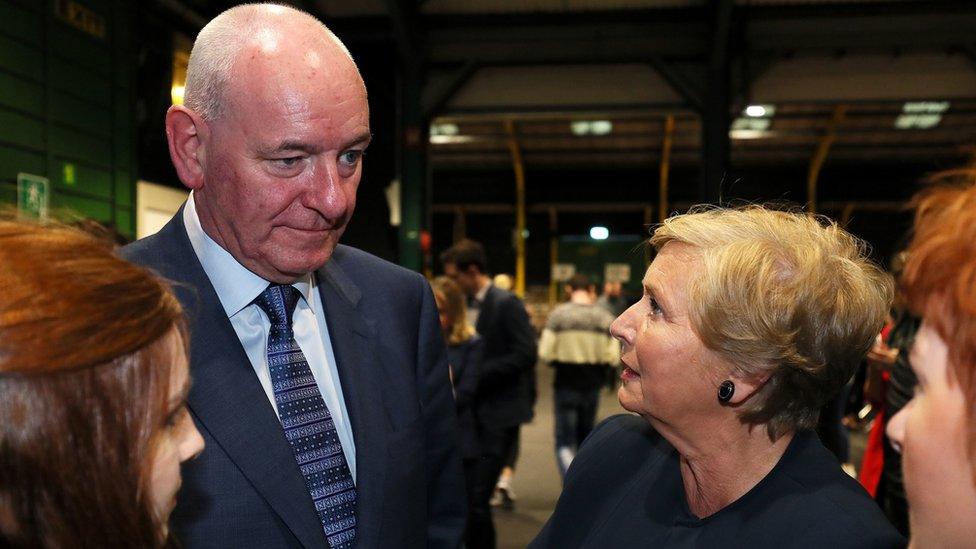
Mark Durkan - who stood for Fine Gael - accepted that other issues eclipsed his anti-Brexit message
But Fine Gael is expected to do much better in the European elections.
With a number of members of the Dáil (Irish parliament) certain to be returned as MEPs, there will have to be by-elections, which could destabilise the already fragile relationship between the two biggest parties.
And while both have agreed to continue their confidence-and-supply arrangement for another October budget because of Brexit uncertainty in the UK, there has been a lot of parsing of comments made by the Taoiseach (Irish prime minister) Leo Varadkar about another return to the polls.
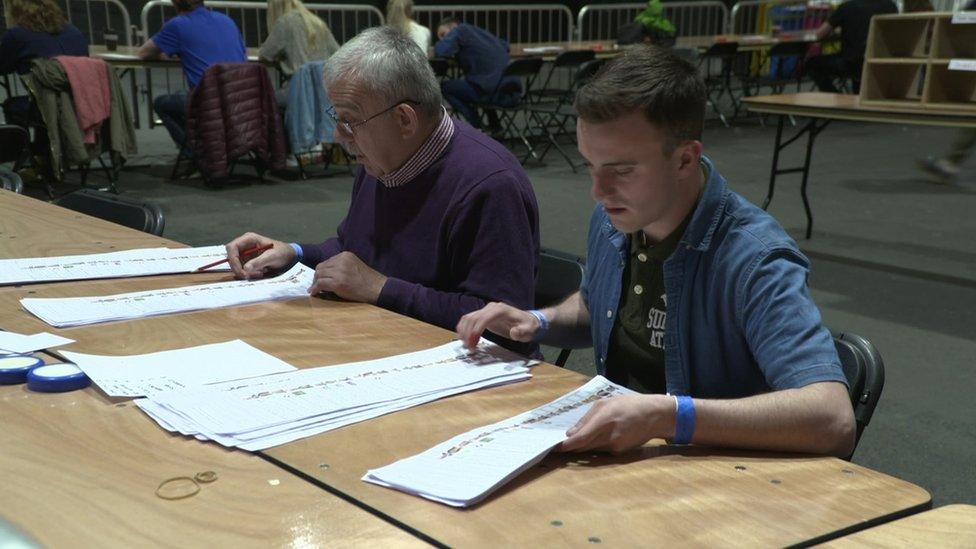
Counting in the Republic began on Sunday
In two separate interviews with Irish national broadcaster RTÉ, he said he could not rule out a general election this year, but he would not call one in the coming days or weeks.
That has led some to speculate about the possibility of a late-June poll given that the UK will not be leaving the EU before the end of October.
It is the taoiseach's prerogative to call an election - voters will have to wait and see what he decides.
- Published27 May 2019
